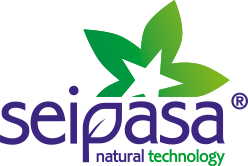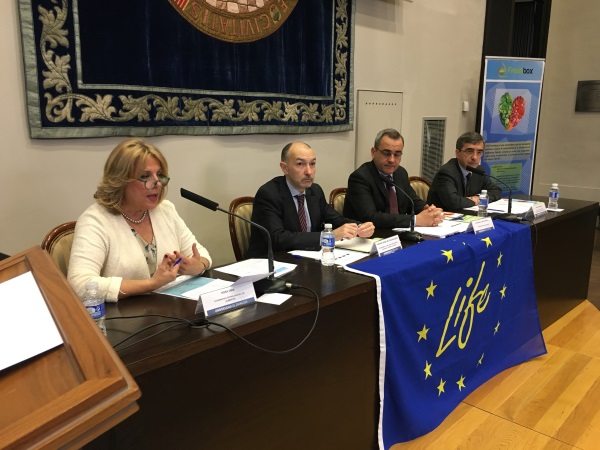Seipasa, a company specialized in natural solutions for zero residues agriculture, has concluded its participation in the Life+ Project ‘Zero Residues’ for stone fruit co-funded by the European Union. After 4 years of research led by Dr. Rosa Oria Almudí of the Food Technology Area of the University of Zaragoza, the conclusions of this initiative have been presented this morning at an event held at the Auditorium of the University of Zaragoza.
The Life+ Project ‘Zero Residues’ was launched in June 2013. It was aimed at improving the sustainability and quality of production of stone fruit to provide a more competitive and healthy sector. Seipasa is part of the consortium that has driven this initiative led by the University of Zaragoza and the Zerya voluntary standard. Seipasa has been responsible for providing natural solutions, as well as technical advice, in crop treatment programs.
During four years, specific work has been undertaken for a Zero Residues production method (free of pesticide residue) to be implemented for stone fruit. In particular, 5 different fruit species have been analyzed: cherry, apricot, flat peach, nectarine, peach. This Zero Residues method has been applied to all processes in the supply chain in order to produce, preserve and market products free from phytosanitary residues. The method includes adaptations in production, post-harvest preservation, processing of derived products and promotion in the market.
"We proposed that a fruit of such level of excellence not only reached the consumer in optimum conditions, but also to minimize food waste and the carbon footprint. The results are excellent, "says Javier Arizmendi, operations manager Zerya.<
Reduction in soil degradation
After the analysis of soil samples both at the beginning and at the end of the Project, the results obtained show a positive evolution of the physicochemical parameters. The pH values in some of the plots fell to 0.84 units, significantly improving soil characteristics. Soil’s structure and functional capacity were also improved, enhancing its fertility and conservation status.
Furthermore, improvements have been made in how trees resist to diseases, as well as an increase in productivity and quality. As indicated by the results presented, application of the Zero Residues method to trees in productive decline (due to their old age) managed to improve yield by one ton per hectare/year.
Fruits of better quality
Concerning post-harvest, fruits produced by the Zero Residues method presents the four key aspects of sensorial quality and acceptance by the consumer: firmness/crunchiness, characteristic flavor intensity, sweet-sour balance and absence of off-flavors.
Increases of shelf life after harvest have been also achieved thanks to the development of microperforated packaging and the selection of optimum storage conditions for each fruit. Up to 7 days of shelf life increase were obtained for nectarine through the use of controlled atmospheres and 5 days for cherry with modified atmosphere packaging.


